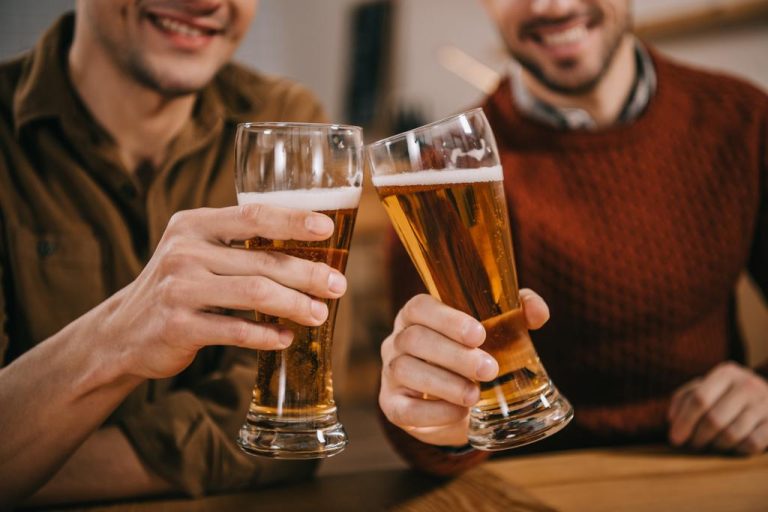Plant-based milk alternatives have been experiencing rapid market growth for several years. According to the market research company Nielsen, plant-based milk from soy, oats, almonds and the like increased by a full 47% between August 2019 and August 2020. It is thus well above the annual growth rates for alternative milk drinks of almost 10% forecast worldwide in 2019.
The proportion of oat milk rose particularly sharply in Germany during this period. According to Nielsen, with 115% it is not only one of the growth winners, but also one of the most popular plant-based milk drinks in Germany. Already more than half (53%) of the total sales in the milk alternatives category in Germany are made with oat milk.
The Society for Consumer Research (GfK) also confirms the “extremely dynamic” growth of milk alternatives. In their monthly report on the GfK household surveys, the market researchers from Nuremberg even describe this market as “crisis-resistant”.
Growth drivers are diverse and sustainable

The reasons for the strong and crisis-independent growth are manifold – just like the consumers themselves: “There are concerns about the ongoing climate change, the knowledge of the influence of one’s own diet, the desire to eat healthier and the horror at the conditions in factory farming several strong reasons. Apart from that, the milk alternatives also taste very delicious,” says Anna-Lena Klapp, an expert on plant-based milk alternatives and editor-in-chief of the plant-based milk report by the international nutrition organization ProVeg.
The environmental and climate balance of alternative products is pleasing. Plant-based milk alternatives are up to 95% better than cow’s milk in terms of greenhouse gas emissions and land and water use. Oat milk is particularly good at this. It also benefits from the short transport routes of the oats, because the grain can be grown well in our latitudes.
State punishes more climate-friendly milk alternatives
Despite the good balance in terms of health, climate, animal welfare and the environment, plant-based milk alternatives are still disadvantaged by politics. They are subject to the increased VAT rate of 19%. Cow’s milk, on the other hand, is only taxed at 7%: an indirect subsidization of a foodstuff that is harmful to the climate and the environment, which was recently criticized by the WBAE, the scientific expert committee of the Federal Ministry of Agriculture and Food, as inappropriate for environmental and climate policy reasons. The committee calls for lower taxation for environmentally and climate-friendly, specifically plant-based foods. Food of animal origin, on the other hand, should no longer be subsidised, but taxed at 19%.
Rapid growth without the dairy industry?
Despite these hurdles, manufacturers of alternative dairy products are expecting rosy times: “Plant drinks currently still have a share of a good 10 percent of the entire milk market in Germany. However, we assume that there will be a drastic change in consumption in the next 10 years and that significantly more plant-based drinks will be consumed than cow’s milk,” says Helge Weitz, DACH manager at Oatly, the market leader for oat milk.
The classic dairy industry is still holding back with its own milk alternatives despite the good market prospects. So far, Alpro has dominated the German market, followed by the food trade with a large number of own brands in second place and the Swedish oat milk manufacturer Oatly in third place in the sales ranking. Although the market leader Alpro, which was taken over by global player Danone in 2017, is experiencing enormous growth, its competitors in the dairy-processing food industry are not following suit with dairy alternatives.
Possible reasons for the reluctance: Dairy companies fear pressure from their suppliers, the dairy farmers, who have been complaining about falling milk prices for decades and are keeping their heads above water, above all, with EU agricultural subsidies. Dairy processing companies themselves also benefit from the low milk prices because they increase the margins of their dairy products.
Consumption of cow’s milk is declining
The sale of both fresh milk and UHT milk is declining in Germany. In the past year alone, sales of fresh milk have fallen by 3.5% and UHT milk by 6%. However, instead of taking up the trend towards promising, climate-friendly and animal-friendly milk alternatives and bringing vegan milk alternatives onto the market, the dairy industry resorts to well-known defense mechanisms.
With the help of an online portal, the dairy industry is planning to regain control of information about cow’s milk and milk-like products. According to the Lebensmittelzeitung, several million euros are currently being collected from those involved in the dairy industry. At the same time, lobbyists from the agricultural and dairy industries in the EU Parliament have achieved that plant-based dairy products can no longer be called plant-based “milk” or vegan “cheese”. What is new is that designations such as “Yoghurt type” or “Butter” alternative are no longer permitted. The argument of the agricultural and dairy industry lobby, which wants to avert unwanted competition with the campaign: Otherwise, consumers would not be able to distinguish plant-based milk alternatives from cow’s milk products.
No customer confuses scouring or coconut milk with cow’s milk

Advocates of a sustainable diet see this argument as a pretense. They argue: Nobody would think of cow’s milk when they saw scouring milk or coconut milk. Jasmijn de Boo, Vice-President of ProVeg, cannot understand the action of the EU Parliament: “It is in direct contradiction to the declared goals of the European Union in the international Green Deal and Farm-to-Fork strategy, the turnaround towards a more sustainable and healthier food system.” Livestock farming is responsible for around 16% of all greenhouse gas emissions generated worldwide. Alternatives to animal products should therefore not be blocked, but encouraged.




